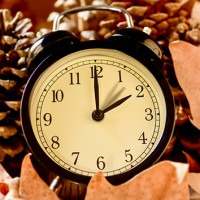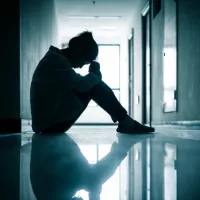
 iStock/Thinkstock(NEW YORK) — The winter blues can set in as temperatures drop and days shorten, but for some people, winter can mean developing an actual case of seasonal depression called seasonal affective disorder.
iStock/Thinkstock(NEW YORK) — The winter blues can set in as temperatures drop and days shorten, but for some people, winter can mean developing an actual case of seasonal depression called seasonal affective disorder.
As the sun sets earlier after the end of Daylight Saving Time, many people start to develop the telltale signs of seasonal affective disorder, including irritability, excessive sleeping and loss of interest, said Jeff Janata, professor of psychiatry and director of psychology at University Hospitals Cleveland Medical Center.
“The weeks immediately after the switch to Daylight Saving Time is often the period of time when this emerges,” Janata told ABC News.
While many people may exhibit some depressive symptoms in the winter months, he estimated approximately 3 percent of the population is affected by the disorder.
“It’s not so much melancholy depression as it is what we think as neurovegetative depression,” Janata explained. This means symptoms can run the gamut from a constant need for sleep, feeling low energy to having a constant craving for carbs. If this sounds like people with the disorder are basically trying to hibernate, Janata said that is not far off the mark.
“It actually follows animal models were there is an effort to conserve energy in the winter,” Janata said. To be diagnosed with seasonal affective disorder, a person has to develop these acute symptoms for at least two years, according to the National Institutes of Health.
Thankfully, for those who crave sunlight, a light therapy box recommended by their doctor can help. The light from those boxes mimics the broad spectrum of sunlight. In addition, a simple “15 to 20 minute walk daily” can help with seasonal affective disorder symptoms, Janata said.
However, if you’re feeling like your winter blues might be signs of seasonal affective disorder, Janata recommends first going to a primary care physician for a diagnosis.
“The first step that anytime you develop any inexplicable depressive symptoms is be sure to go see a primary care doctor,” Janata said. “There are many physical causes.”
Copyright © 2016, ABC Radio. All rights reserved.















